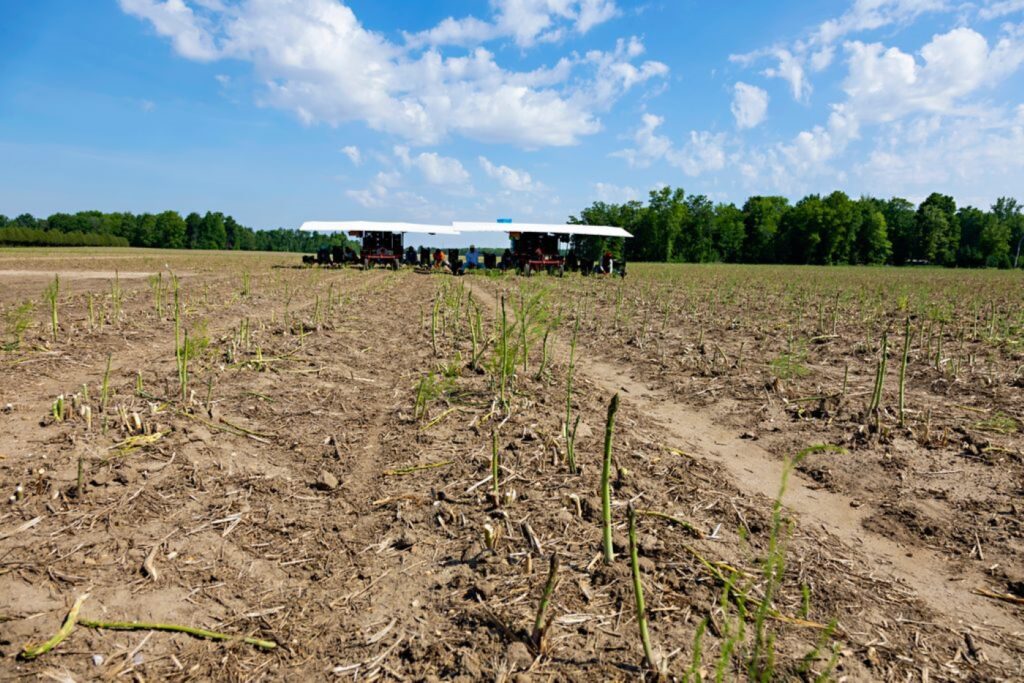Study highlights sustainability of Ontario fruits, vegetables

A new study shows that over the last two decades, Ontario’s fruit and vegetable growers have been widely adopting a range of practices that support sustainable local food production.
Read Also


Agriculture needs better frame for carbon value, says panel
Glacier FarmMedia – The agriculture industry can still get a hand on the reins of climate change discussions, said members…
In a release, the Ontario Fruit and Vegetable Growers Association (OFVGA)said these practices include investments in technologies and practices that support more efficient use of water, energy and fertilizer; use of tools like soil testing and cover crops; and reducing water and synthetic pesticide use.
According to the study, in the greenhouse sector, 95 per cent of survey respondents use water efficient irrigation systems, insulation for more efficient energy use and biological pest control systems. More than two thirds report having installed more energy efficient boilers, climate control and irrigation systems over the last 20 years, as well as heat storage and energy curtains and screens to reduce their energy use. About half have transitioned to more energy efficient lighting, and close to one-third are using renewable energy and/or capturing and re-using carbon for crop growth.
In outdoor crop production, 85 per cent of growers report using crop scouting and pest monitoring to target crop protection applications only as needed, 80 per cent are using soil test results to guide more precise fertilizer application, and 78 per cent are planting cover crops to keep the soil healthy and support carbon capture.
The study also found that growers are willing to continue making changes and that addressing broader industry issues around competitiveness, taxation, red tape and regulatory burdens combined with incentive initiatives will make it easier for growers to expand their adoption of sustainable practices.
“We’ve made tremendous progress in the last two decades, and growers are willing to do more, but farms need to also be financially viable, which includes a streamlined regulatory environment, financial investments and the consumer support,” greenhouse grower Jan VanderHout, chair of the OFVGA Environment and Conservation committee, said in the release.
“Fruit and vegetable production is an essential pillar of our local food system and it’s critical to Canada’s national security that we do everything we can to preserve and protect our ability to grow healthy, safe and sustainable produce.”
The study was completed over the last year by Vineland Research and Innovation Centre and involved a combination of surveys and in-depth interviews with growers from across Ontario’s fruit and vegetable sector.
Additional study results:
Top three reasons to adopt sustainable practices for both greenhouse and outdoor growers:
- economic/cost savings
- desire to be environmentally sustainable
- improve the quality of their products
Top three challenges in adopting sustainable practices:
Outdoor growers:
- cost of sustainable practices, technology or equipment vs. return.
- high operating costs mean minimal margin available for adopting new practices and technologies.
- lack of time and capacity (e.g. labour) to experiment with new practices and technologies within acceptable weather/seasonal timelines.
Greenhouse growers:
- cost of sustainable practices, technology or equipment vs. return.
- high operating costs mean minimal margin available for adopting new practices and technologies.
- regulatory hurdles related to permitting and approvals.
Top three resources that have been most helpful to growers in adopting sustainable practices:
- Outdoor growers: networking with peers, researchers or research studies, government funding programs.
- Greenhouse growers: networking with peers, government funding programs, private consultants.
- 96 per cent of greenhouse respondents and 78 per cent of outdoor grower respondents follow at least one sustainability certification program or assessment, with the most popular being the Environmental Farm Plan.
- Outdoor growers are increasingly using technologies and techniques to protect their crops against the changing climate, including growing hardier varieties, installing fans to ward off frost and using netting to protect against hail and wildlife damage.
Source: Farmtario.com

